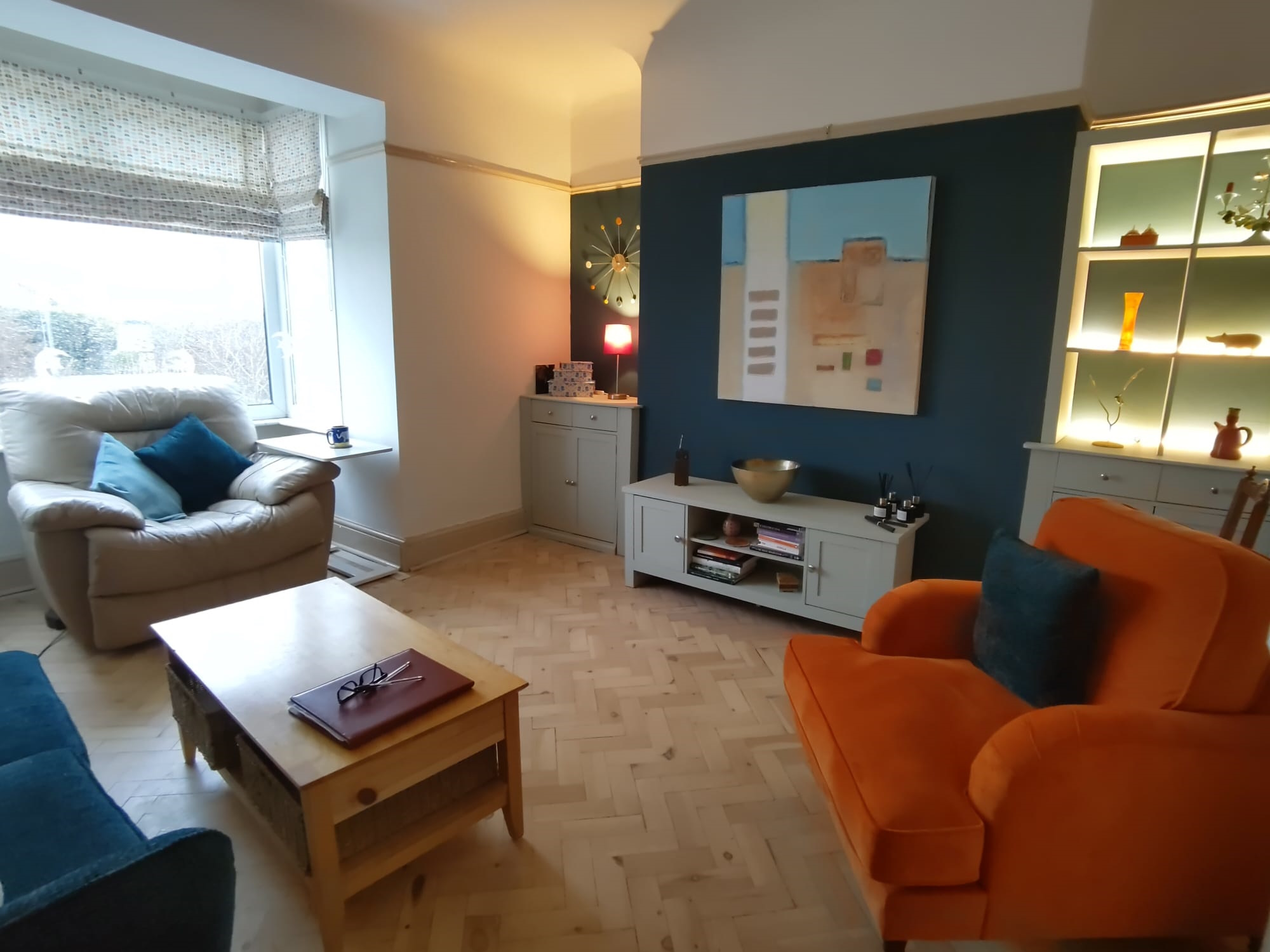
What to expect from therapy
Therapy is a conversation. But unlike talking to a friend, this conversation focuses exclusively on what matters to you. This is your space to explore who you are, how you’ve been shaped by people and events, and how that shows up in your life now. You might have feelings or reactions that you don’t really understand or that you want to change. Therapy gives a chance to explore what those thoughts and feelings mean, where they came from, and what are they trying to tell you.
What goes on in therapy?
Most of therapy is just talking and trying to figure things out. We sit in our chairs and we talk honestly to each other. There are ebbs and flows. There are times when you feel you suddenly get something or have a breakthrough, and there are times when you feel you’re muddling along. Alongside the talk, we might do some more structured exercises – I might ask you to write something or work through some more structured questions. Sometimes we’ll try something more practical, like hypnosis or relaxation exercises to help you tap into resources of calm and resolve. Or we might try chairwork – where you talk to a person or even an aspect of yourself in an empty chair. We might even role play things to try to understand a bit better what’s happening or what’s keeping you stuck. We only do what you are comfortable with, and we go at your pace.
How long does it take?
Some problems don’t go so deep. Perhaps you just need a chance to talk everything out or deal with a very specific problem and we might work that through in just a few sessions. But some issues that people bring to therapy have been rumbling on for years, it might feel like something that’s entwined in your personality. That can take a bit longer to work through. We’d generally identify an initial goal and work towards and then review. Of course, sometimes your goal changes as you explore layers of an issue. Sometimes, it makes sense for the frequency of meetings to change as you work through an issue and you might switch to fortnightly, monthly or even ad hoc sessions.
How do I know if it’s working?
You’ll know it’s working if you feel you have more understanding of yourself and the difficulties you’re facing. If you’re a couple, you’ll start to recognise the patterns and understand what’s happening and why. It’s not always a straight line – sometimes you explore something and it can stir up new insights and feelings. Sometimes the goal you thought you wanted at the start isn’t the goal you want later on. We’ll check in regularly to see if you feel you’re getting something useful from the sessions. You are not tied into a contract and you can stop at any time, but before then we’d always try to address any blocks to keep therapy on track.
Therapy is a journey you take with a stranger to create a new map of yourself and your life. If you’d like to start that journey, get in touch to set up a free initial call.